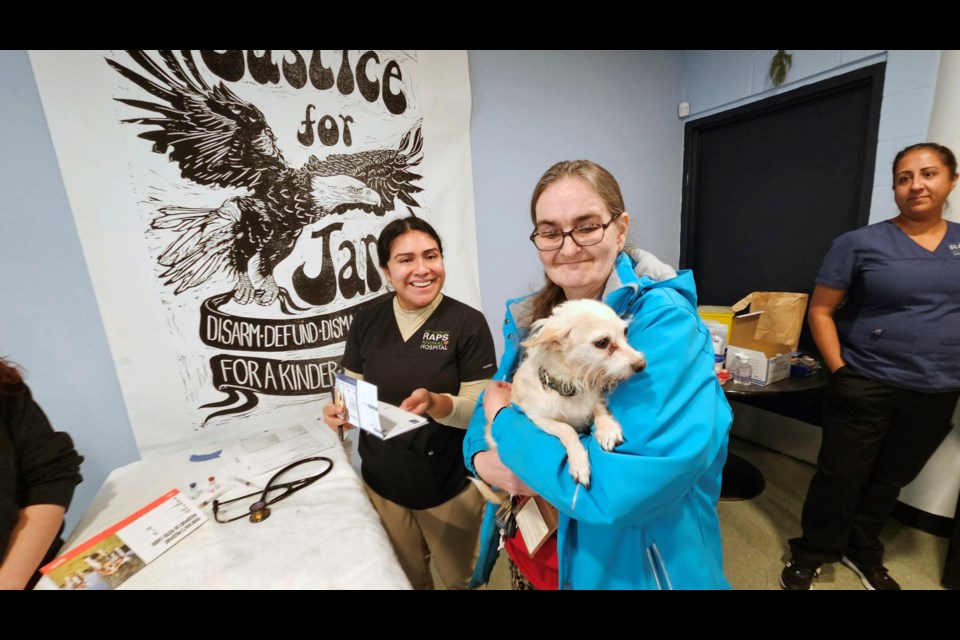For people without homes, the winter is obviously an especially dangerous time. For those with companion animals, finding temporary shelters during cold winter weather comes as an extra challenge.
Temporary shelters generally require pets to have proof of standard vaccinations — if they accept pets at all. Without vaccinations, a pet may be refused entry to a shelter — and their person will be left out in the cold, too. People are not willing to leave their pets behind.
It was partly for this reason that the , operated by the , held a “pop-up” veterinary clinic in Vancouver’s Downtown Eastside recently, one of the city's oldest neighbourhoods, which faces a myriad of social issues. The pop-up clinic not only addressed veterinary needs but also contributed to assisting with housing and socio-economic challenges.
“It was a great day,” said Dr. Victoria Cruz-Mendez, one of the three doctors on site. “We treated 90 dogs and 45 cats.”
The event, in partnership with , provided vaccines, routine checkups, flea treatments and other basic care.
Basic veterinary necessities are a financial hardship for many of the people who came to the clinic — and exceptional expenses are potentially disastrous. However, the overwhelming response demonstrated the urgent need for such services, as RAPS had to turn away 45 clients due to the exhaustion of supplies and time. These individuals are now on a waiting list for a future pop-up clinic, highlighting the continued demand for assistance. And the original 135 clients still need second doses of vaccinations, meaning the next pop-up clinic will require supplies for at least 180 patients.
The organization also held a pop-up Pet Food Bank at the same time, with not only food but also harnesses, leashes, dog beds and other necessities.
“It was very busy,” said Cruz-Mendez. “Unfortunately, demand was so great that we ran out of supplies. We are hoping to partner with Watari and get funding from community allies to do more pop-up clinics this year.”
For many people experiencing homelessness or living in challenging housing situations, their pet may be one of the most significant relationships and also an important source of stability.
“We want to make sure these relationships are strengthened and supported,” said Cruz-Mendez. “It’s good for the animals as well as for the people.”





